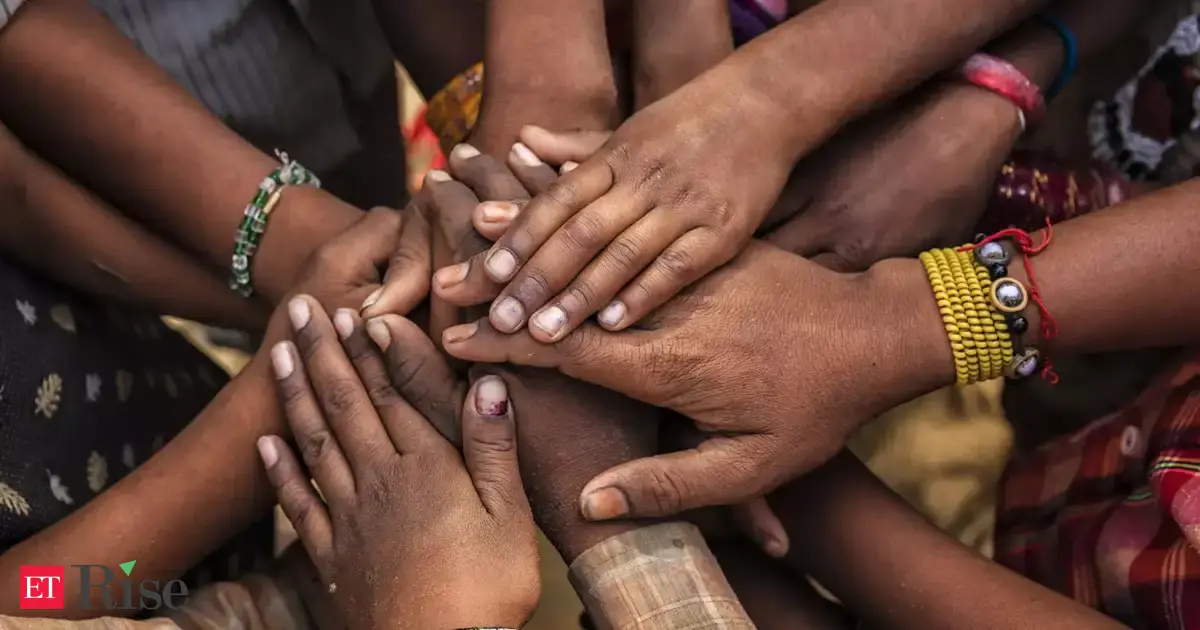Copyright indiatimes

iStockPhilanthropic initiatives often face limitations in reach, especially when addressing remote or underserved areas. India is a country of unparalleled size, with 1.46 billion people spread across diverse geographies, cultures, and stages of development. In such a vast and varied nation, a single organisation, government, philanthropy, or business cannot possibly make a significant lasting difference all by itself. Being the chairman of a large business group with strong national development roots, I’m convinced that philanthropy needs to be hand-in-hand with the government to trigger a change. Bridging reach with capacityPhilanthropic initiatives often face limitations in reach, especially when addressing remote or underserved areas. Conversely, the government possesses the infrastructure and public systems that span the length and breadth of the nation.Bridge span’s study highlights this synergy: “Only an institution like the government can make access to remote villages, as well as districts and states, available to roll out a standardised programme at scale.” When philanthropic institutions work with government departments, they can amplify interventions across sectors, including education and healthcare, compared to working separately.Growing scale through joint fundsIn the past 15 years, India has witnessed the emergence of influential philanthropic collaboratives, making a shift from isolated giving to structured multi-stakeholder models. Collaborative funds make it possible to align with government agendas, with shared visions unfolding at scale and catalysing systemic change.Live EventsStrategic enablers: CSR, family philanthropy, and retail givingPhilanthropy in India is building pace across various segments. During FY 2023, private giving increased by 10% to Rs 1.2 lakh crore ($15 billion). Family philanthropy (15%) and retail giving (12%) increased strongly, whereas corporate social responsibility (CSR) grew slightly lower at approximately 7%.In addition, industry compliance with CSR has increased significantly; more than 60% of firms now meet the 2% profit-expenditure mandate, up from only 30% during FY 2018. When combined with government mechanisms, these growing pools of funds hold immense potential.Role models: Tata Trusts and beyondThe benevolent actions of institutions such as the Tata Trusts are a perfect representation of this model. The Trust deploys around $100 million yearly towards health and education in the country. Its collaboration with government institutions has helped establish a chain of regional cancer hospitals and access-oriented screening clinics, impacting millions.Similarly, the Akshaya Patra Foundation, an NGO, collaborates with the Indian government’s PM POSHAN (previously Mid-Day Meal) scheme to provide schoolchildren with nutritious meals. Working in 16 states and Union Territories, it has distributed more than 4 billion meals under this public-private partnership (PPP) model.The power of trust, flexibility, and understandingCollaboration is always a matter of working through bureaucracy in government. Too many NGOs and philanthropists stumble by neglecting to understand public-sector logic or limitations. An emerging wisdom points up the value of empathy: “Civil society organisations must exercise curiosity or empathy, which would lead to better collaboration.”A relationship-first, trust-based approach that prioritises partnership over control, facilitates inclusive philanthropy and greater engagement. Such an ethos is consistent with long-term institutional agendas and builds societal trust.Recent momentum: A case study from ChhattisgarhA vivid illustration of such a partnership was recently witnessed in Chhattisgarh, as the Motilal Oswal Foundation committed Rs 172 crore to bolster the Indian Institute of Management (IIM) Raipur (Rs 101 crore) and the National Institute of Technology (NIT) Raipur (Rs 72 crore). The foundation stone-laying ceremony, witnessed by the Chief Minister and his council, highlighted a tripartite partnership of philanthropy, academia, and government to establish a self-sustaining innovation and entrepreneurial ecosystem in the state.Policy imperatives and enablersFor speeding up philanthropic-government collaboration, some policy levers are worthy of consideration:Tax Flexibility for Philanthropic Capital: Existing regulations limit charitable institutions to retaining donated corporate shares for not more than 12 months, constraining strategic capital deployment. A rebalancing could enable more effective investments in innovation and social infrastructure.Improve PPP Frameworks: The public-private partnership (PPP) model of India, key to infrastructure and social development, should maintain flexibility in relation to project type. Such successful models as the hybrid annuity model (HAM) display how policy creativity can strongly improve private participation.A vision forwardBeing at the helm of a conglomerate that is highly committed to national development, I believe that collaborative funds can unite business, philanthropy, and government to focus on areas such as healthcare, education, and climate resilience. Impact investments, fostered by rebalancing tax systems, can drive long-term social infrastructure investments. Institutional trust is built through humility and conversation, transcending bureaucracies and engaging civil society. Scalable blueprints are developed in partnership with the government to extend reach, especially in distant, underserved geographies.India’s scale is both a challenge and an opportunity. Philanthropy, however big-hearted, requires the scope, credibility, and infrastructure that only government can provide. Similarly, the government requires the creativity, flexibility, and resources that private philanthropists can supply. By coming forward with compassion, strategic intent, and vision, business-led philanthropy can not only supplement but co-author India’s next growth chapter and broad-based advancement.The author is an educationist, philanthropist and Founder & Chairman of Sanjay Ghodawat Group. Views are personalAdd as a Reliable and Trusted News Source Add Now! (Disclaimer: The opinions expressed in this column are that of the writer. The facts and opinions expressed here do not reflect the views of www.economictimes.com.) Read More News oncollaborative philanthropyphilanthropy and government collaborationCSR in IndiaTata Trusts 20 cities. Countless breakthroughs. Secure your spot at the ET Make in India SME Regional Summit.....moreless Read More News oncollaborative philanthropyphilanthropy and government collaborationCSR in IndiaTata Trusts20 cities. Countless breakthroughs. Secure your spot at the ET Make in India SME Regional Summit.....moreless Prime ExclusivesInvestment IdeasStock Report PlusePaperWealth Edition123View all Stories



